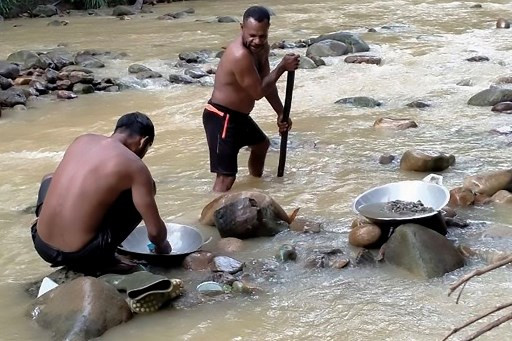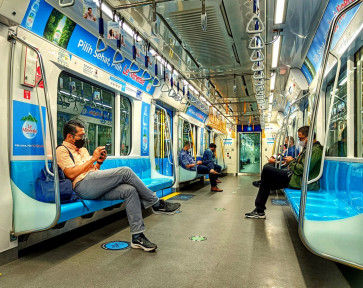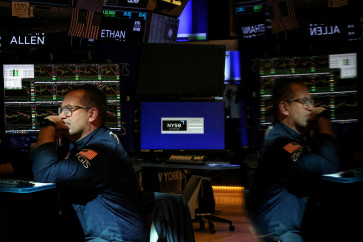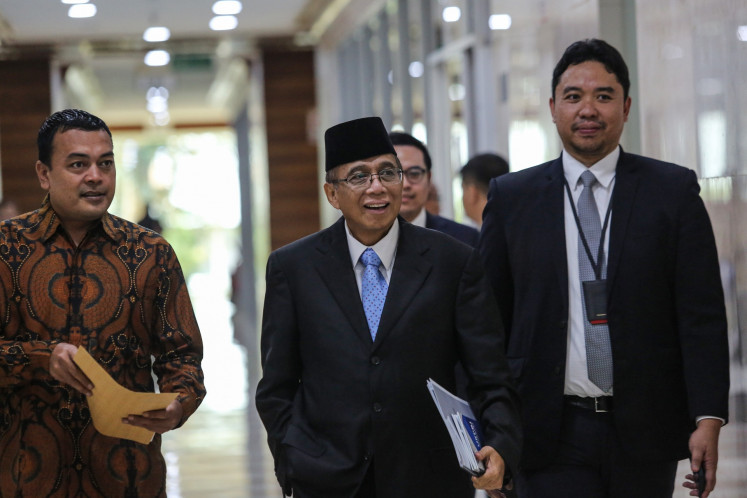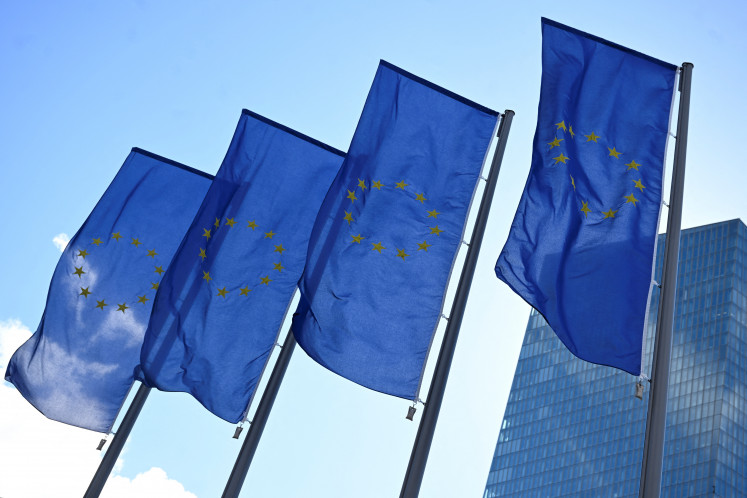Popular Reads
Top Results
Can't find what you're looking for?
View all search resultsPopular Reads
Top Results
Can't find what you're looking for?
View all search resultsIndonesia to focus on unresolved issues as COP4 Minamata Convention host
Two substantive issues that are set to be discussed at COP4 are the reviews of Annexes A and B of the Minamata Convention.
Change text size
Gift Premium Articles
to Anyone
A
s the host of the fourth Conference of the Parties (COP4) to the Minamata Convention on Mercury, Indonesia is aiming to lead parties to the convention to come into agreement on some issues left unresolved in the previous conference, COP4 president Rosa Vivien Ratnawati said.
The parties’ delegation is set to convene in Nusa Dua, Bali in a five-day conference after more than a year’s delay due to the pandemic. The in-person conference – the first time that parties to the conference will gather outside of Geneva, Switzerland, which hosted the first three conferences – was preceded by online sessions that were held between Nov. 1 and 5 last year.
Two substantive issues that are set to be discussed at COP4 are the reviews of Annexes A and B of the Minamata Convention, which lists products that use mercury and manufacturing processes in which mercury or mercury compounds are used, as well as effectiveness evaluation of the convention.
The effectiveness evaluation was a key criterion to assess the main goal of the Minamata Convention, namely to restrict, and in some instances, completely ban, the use of mercury in products and manufacturing processes, said Rosa.
“There are still differences in opinions between developed and developing countries. The developed countries want to use detailed data and criteria [to assess the convention’s implementation], while some developing countries still have reservations,” Rosa, who is also the Environment and Forestry Ministry’s waste management director general, said on Friday.
“As the host of COP4, Indonesia has the opportunity to bridge such differences.”
In addition to the two issues, Indonesia is also seeking support from parties to the convention to endorse the Bali Declaration on Combating Illegal Trade of Mercury. The non-binding declaration is set to be announced on Monday.
The Minamata Convention, which was signed in 2013 and entered into force four years later, is a global treaty with the aim of protecting human health and the environment from the adverse effects of mercury, a liquid metal commonly found in everyday items such as fluorescent lamps and batteries.
The convention was named after a city in Japan that became the epicenter of Minamata disease, a neurological disease caused by severe mercury poisoning, in the 1950s. Currently, 137 countries are parties to the Minamata Convention.
Rosa said there were four priority sectors mandated by the Minamata Convention to reduce their mercury usage, namely health, manufacturing, energy and mining, all of which had also been addressed in Indonesia’s national action plan that was issued in 2019.
As of 2020, the use of mercury had been banned in the health and mining sectors in Indonesia, although the government acknowledged that some small-scale gold mining operations still used mercury, Rosa said. She added that the government was working with the miners to help their transition to alternative jobs.
The national action plan also set a target for the manufacturing and energy industries to limit their use of mercury to 50 percent and 30 percent, respectively, from the 2018 baseline.
The Energy and Mineral Resources Ministry’s head of electricity technology research and development, Hariyanto, said the ministry supported the national action plan, saying it aimed to phase out mercury usage in the energy sector as well as the manufacturing industry, particularly lamp industry.
He said the ministry aimed to have all fluorescent lamps in the country replaced with light-emitting diodes (LEDs), which are more energy-efficient and environmentally friendly than the former, by 2035.
“[By switching to LED lamps] we can also save 41 terawatts per hour, which is significant as it will also reduce emission by as much as 36 million tons of carbon dioxide,” Hariyanto said.
Integrated Lamps Manufacturing Association (Gamatrindo) secretary Erri Krishnadi said lamp manufacturers had also started to shift the production to LED lamps as global supply of mercury had dwindled after the Minamata Convention entered into force and more consumers switched to LEDs.

